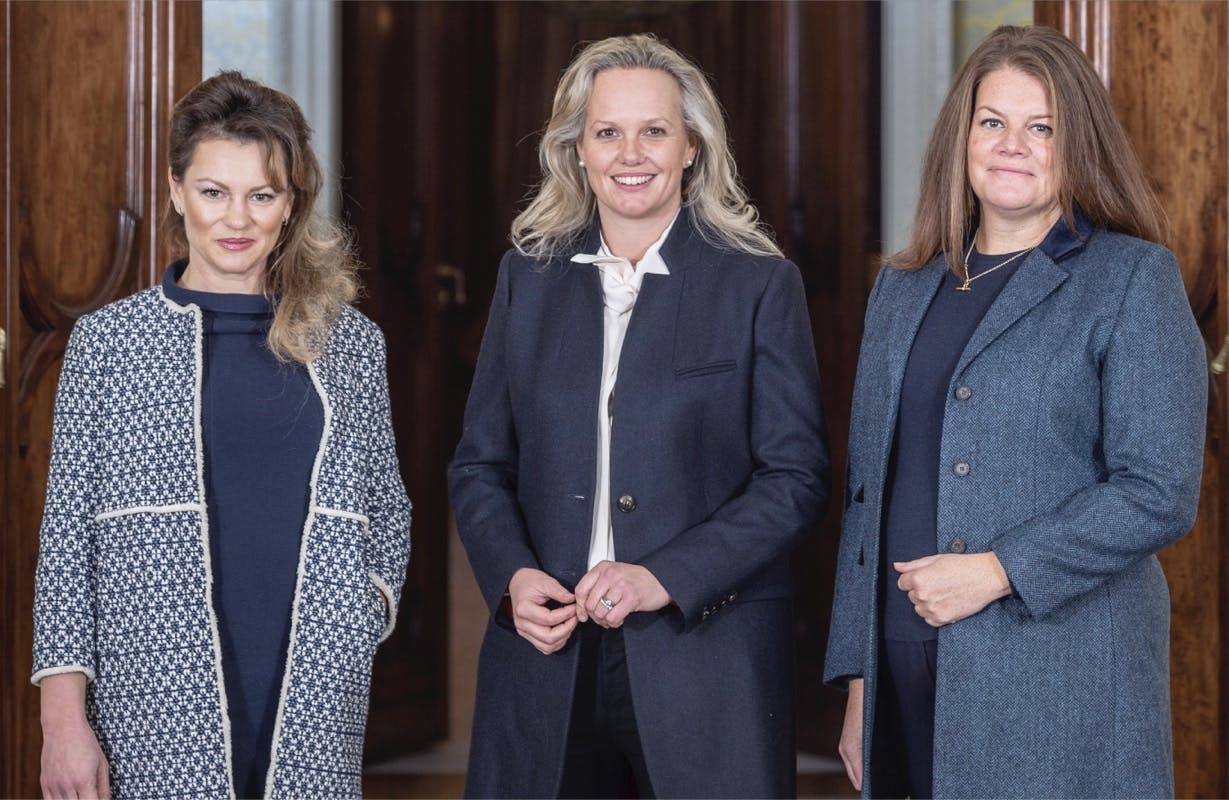PrimeResi meets top buying agent Jess Simpson, an ex-Savills director and the former head of Strutt & Parker’s buying arm, who set up her eponymous firm in 2018 and now heads an all-female team specialising in acquiring country houses, estates and farmland across England. Here, she discusses the remarkable resurgence in the country market over the last 12 months, her most challenging searches to date, and the importance of letting your own success speak for itself…
You left the corporate world to start your own business in 2018; what have been the biggest challenges so far and what advice would you have for anyone considering a similar move?
It is so tempting to be drawn to lots of other business ideas and opportunities which arise from setting up your own business, but my advice is to stick with what you do best and make sure you are the best at it and don’t grow too quickly. When you have a service business looking after ultra-high net worth clients, having time to give them the service they expect has to be number one priority and this will pay dividends long term. Keep your costs low and when making expensive decisions really think about whether this helps your clients or your ego.

How has the Covid crisis affected business, and have you been forced to make any changes to your company structure or plans as a result?
I noticed early on that there was a huge demand from buyers looking to move from London – either to rent or to buy. We sourced a number of high-end rental for clients and after speaking to local prep schools who told me that they were oversubscribed for 2021 and 2022. I realised that this trend was set to continue for a while yet. I then took the leap in broadening our team and offering to provide really great local advice and service in particular areas such as The Cotswolds and the South West.
Estate agents have been reporting huge surges of activity in the country market over the last year, as buyers seek out space and greenery. Is this also what you’re seeing on the ground, and where do you think country markets are headed in 2021 and beyond?
Definitely. The country house market has been undervalued for such a long time and given improvements in broadband, connectivity and transport, it’s been hard to understand why. Now everyone has realised what a lifestyle improvement living in the country can be and we are now in an age where mental health is better understood along with the need to improve mental wellbeing.
We’ve been hearing reports of certain properties sparking bidding wars, while others struggle to get a viewing; what kind of stock is proving popular at the moment, and what’s tending to stick around?
In a weaker market there has been a drive to quality. Now even the most compromised properties are selling
This is about quality and pricing. In a weaker market there has been a drive to quality. Now even the most compromised properties are selling. This is where buyers who are new to the area need to be careful. The old adage ‘location, location, location’ could not be more important and care must be taken not to overpay now if you are thinking that this may be a temporary purchase to get a quick foothold in the country. Houses on the edge of good villages within 1.5hrs of London are the most sought after and most often sold in competition. Houses with land and a large garden are also proving very scarce.
We’ve been out of the European Union for over two months now; has Brexit had any noticeable effect on the country property market so far?
Not really. Any concerns about how Brexit may affect the market and overall confidence has been overtaken by the effect of Covid. There could be an interesting dynamic where we may see increased overseas investment in Britain along with strong domestic demand resulting in further price growth – this may be more likely in London, but may ripple out to the country.
Are there any under-the-radar locations offering particularly good value for money right now?
Historically popular areas like Hampshire and Surrey are now being overlooked for areas like Oxfordshire and The Cotswolds. They offer proximity to London, beautiful countryside but some parts can be affected by plane and road noise, so knowing where the unspoilt pockets are is key. Areas such as Herefordshire, Worcestershire and Shropshire are unspoilt and achingly beautiful and offer real value for money. Other counties on the periphery of the outer commute such as Wiltshire, Somerset and Dorset are also more popular than ever.
What proportion of country market deals would you say are being done off-market at the moment?
About 70% of properties we purchase are off-market.
What are your clients’ main motivations for instructing a buying agent?
Historically this has been predominantly about sourcing property. Now it’s really to have the best chance of success in a competitive situation and also navigate the geography. More clients than ever have a wider geographical search area – sometimes up to seven or eight counties so knowing the geography and helping to narrow this down depending on schools, local detail around the type of people that live in an area and the facilities is really useful for clients, particularly those moving out of London or from another country.
There has been a big increase in the number of buying agencies in recent years; is there enough business to go round?
I believe so. We take on a small number of clients at any one time which is intentional. There has to be a fit. We take on clients knowing that we are the best people to help them and that we can really add value. We rarely compete with other agencies as nearly all of our clients come through word of mouth. There has been a recent increase in the number of London buying agents taking on country searches. Whilst I can understand why this business would be hard to turn down, I think it can be very dangerous. There is so much more to consider in terms of due diligence with a country search and unless you know what you are looking for, things can be missed.

What’s the most challenging search brief you’ve ever taken on? And can you give us a flavour of the kind of top-end searches on your books right now?
I have had some extraordinary requirements – from re-instating a former railway line to ride horses along, a house with a strong historical literary connection to an exceptional estate with an unlimited budget as well as land for re-wilding and tree planting. The most challenging requirements are the historic rural estates with a large stately house. They are rare trophy assets and the best have been held in private family ownership forever. Unlocking these can take years, but are very rewarding when it comes off.
What’s the best house or estate you’ve seen during your career?
I was lucky enough to be involved in the purchase of The Tottenham Estate, a Grade I former school which was a 100,000 sq ft restoration project with a further 100,000 sq ft of new build. It will be one of the best estates in the south of England when completed.
Where would you personally buy tomorrow, given an unlimited budget?
The loveliest farm I have purchased for a client was near Cranborne in Dorset. It had a beautiful Queen Anne Manor house, cottages, traditional stables and 250 acres with hill, valley and ancient woodland. That’s what I think about after a tough day!
Do you think attitudes towards gender have changed in the industry since you began your career, and what in your opinion could be done to move things forward?
When I first started as a graduate over 20 years ago, I was told to refer to the senior partners (all male) as “Mr X” and at a graduate seminar someone told me in very matter of fact way that women left when they got married which was why there were no women in senior positions. When working in London, you had to fit in as one of the boys and let the sexist comments wash over you. Having attended Agricultural university I didn’t find this difficult and enjoyed the camaraderie. I saw being female in a male dominated environment as being an opportunity. I was often taken on pitches to get on with “the wife” and this enabled me to be involved with and often manage some of the best sales in our market place and build relationships with clients who I am still in touch with now.
Never apologise for your other commitments and let your own success speak for itself
Women are often too quick to work part time because we worry about not being able to do the best job we can for our careers and our families. This inevitably means being paid part time and working full time. We often underestimate ourselves compared to our male counterparts. There is nothing wrong with taking a full time role, but achieving that in four days a week through being ultra-efficient and flexible. Never apologise for your other commitments and let your own success speak for itself. I believe that the Covid-19 pandemic has helped more people (men in senior positions!) understand how successful flexible working can be.
Running my own business has given me the ability to make choices for myself and if companies were able to trust their female employees to work flexibly and focus on results that would be a huge step forward.


